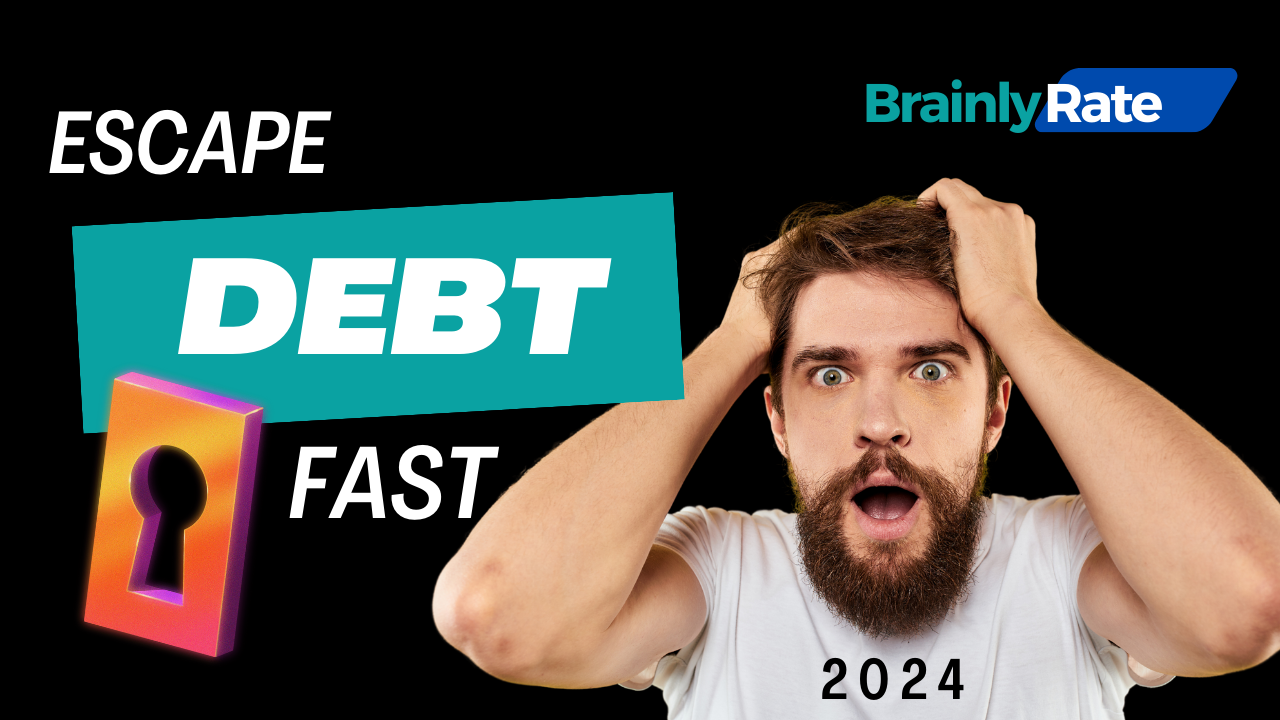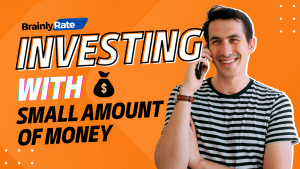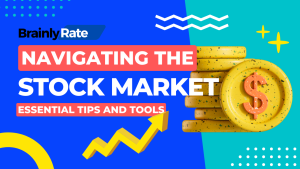In today’s fast-paced financial world, the importance of effective debt management cannot be overstated. Managing debt is crucial for maintaining financial stability and achieving long-term financial goals. It involves understanding how to use debt wisely, recognizing when it becomes a burden, and knowing the strategies to manage and reduce it effectively. Effective debt management is not just about paying off existing debts; it’s about cultivating a healthy financial mindset that prioritizes spending within one’s means and planning for the future. By mastering the art of debt management, individuals can avoid the pitfalls of financial distress and pave the way towards a secure and prosperous financial future.
Recognizing the Debt Problem
Recognizing the signs of a debt problem is the first step towards financial recovery. Here are key indicators that debt may be becoming an issue:
- Persistent worry about meeting debt obligations.
- Using new debt to pay off existing debt.
- Maxing out credit cards or consistently carrying high balances.
- Missing or delaying payments, leading to late fees and higher interest rates.
- Declining credit score due to high credit utilization or missed payments.
- Sacrificing essential needs to keep up with debt payments.
Understanding the impact of debt on personal finance is crucial. Excessive debt can lead to a vicious cycle of financial strain, limiting one’s ability to save for the future, invest, or even meet daily living expenses. It can also lead to increased stress and anxiety, affecting overall well-being. To learn more about managing debt and its impact on personal finance, resources like the National Foundation for Credit Counseling offer valuable guidance and support.
In the next sections, we will explore practical strategies to tackle debt, including budgeting, debt reduction techniques, and ways to increase income and cut expenses. Stay tuned for actionable tips and insights to help you get out of debt fast and regain control of your financial life.
The Psychology of Debt
The impact of debt on mental health and decision-making is profound and often underestimated. Here’s how debt can affect one’s psychological well-being:
- Stress and Anxiety: Constant worry about debt can lead to chronic stress, anxiety, and even depression.
- Reduced Self-Esteem: High levels of debt can lead to feelings of failure and low self-worth.
- Impaired Decision-Making: The stress of debt can cloud judgment, leading to poor financial decisions.
- Relationship Strain: Debt often causes tension and conflict in personal relationships.
Understanding the psychological effects of debt is crucial. It’s not just about numbers; it’s about the impact on one’s overall quality of life. For those struggling with the emotional burden of debt, seeking support from mental health professionals or resources like Consumer Financial Protection Bureau can be a valuable step towards recovery.
Creating a Personalized Debt Payoff Plan
Creating a personalized debt payoff plan is essential for effective debt management. A one-size-fits-all approach doesn’t work; your plan should reflect your unique financial situation and goals. Here are the steps to create an effective strategy:
- Assess Your Debt: List all your debts, including amounts owed, interest rates, and monthly payments.
- Set Clear Goals: Define what you want to achieve, whether it’s paying off high-interest debt first or eliminating smaller debts for quick wins.
- Create a Budget: Develop a budget that allocates funds for debt repayment while covering essential living expenses.
- Choose a Payoff Method: Decide between methods like the debt snowball or debt avalanche based on what will keep you motivated.
- Find Ways to Increase Payments: Look for opportunities to increase your income or reduce expenses to allocate more money towards debt.
- Monitor and Adjust: Regularly review your plan and adjust as needed based on changes in your financial situation.
Remember, the key to a successful debt payoff plan is customization and consistency. For additional guidance on creating a personalized plan, resources like the Federal Trade Commission – Consumer Information can provide valuable insights and tools.
Budgeting to Combat Debt
Effective budgeting is a cornerstone in the battle against debt. It’s more than just tracking expenses; it’s about creating a plan that ensures your spending aligns with your financial goals, especially debt reduction. Here’s why budgeting is crucial and some tips to make it work:
- Control Over Finances: Budgeting gives you a clear picture of where your money is going, helping you to identify areas where you can cut back and allocate more funds to debt repayment.
- Prevents Overspending: By setting spending limits, a budget helps prevent accumulating more debt.
- Goal-Oriented Spending: It allows you to prioritize debt payments, ensuring that you’re consistently working towards becoming debt-free.
Tips for Effective Budgeting:
- Track Your Income and Expenses: Keep a detailed record of all your income sources and where you spend your money.
- Categorize Your Expenses: Divide your expenses into categories (e.g., necessities, debt payments, leisure) to identify non-essential areas where you can cut back.
- Set Realistic Goals: Create achievable budget goals that contribute to your overall debt reduction strategy.
- Review and Adjust Regularly: Regularly review your budget and adjust as needed to reflect changes in your income or expenses.
- Use Budgeting Tools: Consider using budgeting apps or software to simplify the process and keep you on track.
Remember, the key to successful budgeting is consistency and willingness to adjust as your financial situation changes. Effective budgeting not only helps in debt reduction but also paves the way for a more secure financial future.
Debt Reduction Strategies
Effectively reducing debt requires a strategic approach. Among the most popular and effective strategies are the debt snowball method, the debt avalanche method, and the use of balance transfers and debt consolidation.
Debt Snowball Method:
- List Debts from Smallest to Largest: Focus on paying off the smallest debt first while making minimum payments on others.
- Build Momentum: As each small debt is paid off, the sense of achievement motivates you to tackle the next one.
Debt Avalanche Method:
- Prioritize High-Interest Debts: List your debts in order of highest to lowest interest rate.
- Save on Interest: By paying off high-interest debts first, you save money on interest over time.
Balance Transfers and Debt Consolidation:
- Consolidate Debts: Combine multiple debts into a single payment, often with a lower interest rate.
- Balance Transfer Cards: Transfer high-interest debt to a credit card with a lower interest rate, ideally 0% introductory rates.
Each method has its advantages, and the choice depends on your personal financial situation and preferences. For more detailed information on these strategies, resources like Consumer Financial Protection Bureau offer comprehensive guides and tools.
Increasing Income to Pay Off Debt
Increasing your income can significantly accelerate your debt payoff journey. Here are some ways to boost your income:
- Side Hustles: Engage in part-time jobs or freelance work. Popular options include online tutoring, ride-sharing services, and selling handmade goods.
- Sell Unused Items: Generate extra cash by selling items you no longer need, such as clothes, electronics, or furniture.
- Invest in Skills: Acquire new skills that can lead to higher-paying job opportunities or promotions.
- Negotiate Your Salary: Don’t hesitate to negotiate your salary or ask for a raise if you believe your work merits it.
In addition to these methods, exploring passive income streams, such as rental income or dividend-paying stocks, can provide a steady flow of extra cash. For more tips on increasing income and negotiating salaries, visiting Federal Trade Commission – Consumer Information can be beneficial. Remember, the extra income you generate should be strategically directed towards paying off your debts to make the most impact.
Cutting Expenses to Free Up Funds
To effectively reduce debt, it’s crucial to cut expenses and free up funds for repayments. Here are practical tips for reducing monthly expenses and making lifestyle changes:
- Evaluate Subscriptions: Cancel or downgrade non-essential subscriptions like streaming services or gym memberships.
- Reduce Utility Bills: Implement energy-saving measures like LED lighting, and be mindful of water and electricity usage.
- Shop Smart: Use coupons, buy in bulk, and choose generic brands over name brands.
- Cook at Home: Minimize dining out and prepare meals at home to save money.
- Use Public Transportation: If feasible, use public transportation or carpool to save on fuel and parking costs.
These lifestyle changes not only help in freeing up funds for debt reduction but also promote a more financially responsible lifestyle. For more tips on cutting expenses, resources like Consumer Financial Protection Bureau offer valuable advice and tools.
Dealing with Credit Card Debt
Credit card debt can be overwhelming, but there are strategies to manage and reduce it effectively:
- Pay More Than the Minimum: Always try to pay more than the minimum payment to reduce the principal balance faster.
- Target High-Interest Cards First: Focus on paying off cards with the highest interest rates to save on interest costs.
- Balance Transfer: Consider transferring high-interest balances to a card with a lower interest rate.
- Negotiate with Creditors: Contact your credit card company to negotiate lower interest rates or payment plans.
Negotiating with creditors can sometimes lead to more manageable payment terms or interest rates. For guidance on negotiating with creditors and managing credit card debt, visiting Federal Trade Commission – Consumer Information can provide helpful insights and strategies. Remember, the key is to be proactive and communicate openly with your creditors about your financial situation.
Long-term Financial Health
Achieving long-term financial health goes beyond just getting out of debt. It involves maintaining financial stability and preparing for the future. Here are key steps to ensure ongoing financial wellness:
- Build an Emergency Fund: Aim to save at least three to six months’ worth of living expenses. This fund acts as a buffer against unexpected financial shocks.
- Regular Saving: Start a habit of regular saving, even if it’s a small amount. Consider setting up automatic transfers to a savings account.
- Invest Wisely: Once debt-free, explore investment options to grow your wealth. Seek advice from financial advisors to make informed decisions.
- Stay Debt-Free: Avoid falling back into debt by living within your means and using credit responsibly.
Maintaining financial stability is an ongoing process that requires discipline and foresight. Building an emergency fund and saving for the future are crucial steps in securing your financial well-being.
FAQs
What’s the Smartest Way to Get Out of Debt?
- Assess Your Debt: Understand your total debt and interest rates.
- Budgeting: Create a realistic budget to manage expenses.
- Choose a Strategy: Use the debt snowball or avalanche method.
- Cut Expenses: Reduce unnecessary spending to free up funds for debt repayment.
- Increase Income: Consider side hustles or negotiate for a higher salary.
How Do I Get Out of Debt I Can’t Afford?
- Communicate with Creditors: Explain your situation and negotiate payment terms.
- Debt Relief Programs: Explore options like debt consolidation or settlement.
- Credit Counseling: Seek professional advice for a structured repayment plan.
- Prioritize Debts: Focus on high-interest debts or small balances first.
How Do I Pay Off Debt ASAP?
- Extra Payments: Make more than the minimum payments.
- Windfalls: Use any unexpected income (like tax refunds) to pay down debt.
- Expense Reduction: Cut back on non-essential expenses.
- Debt Consolidation: Consider consolidating debts for a lower interest rate.
How Can I Clear My Debt Without Paying?
- Debt Forgiveness: Some debts may be forgiven under certain circumstances, but this is rare.
- Bankruptcy: As a last resort, bankruptcy can clear certain debts, but it has significant long-term consequences.
- Negotiate Settlements: In some cases, creditors may accept a settlement for less than the full amount owed.




